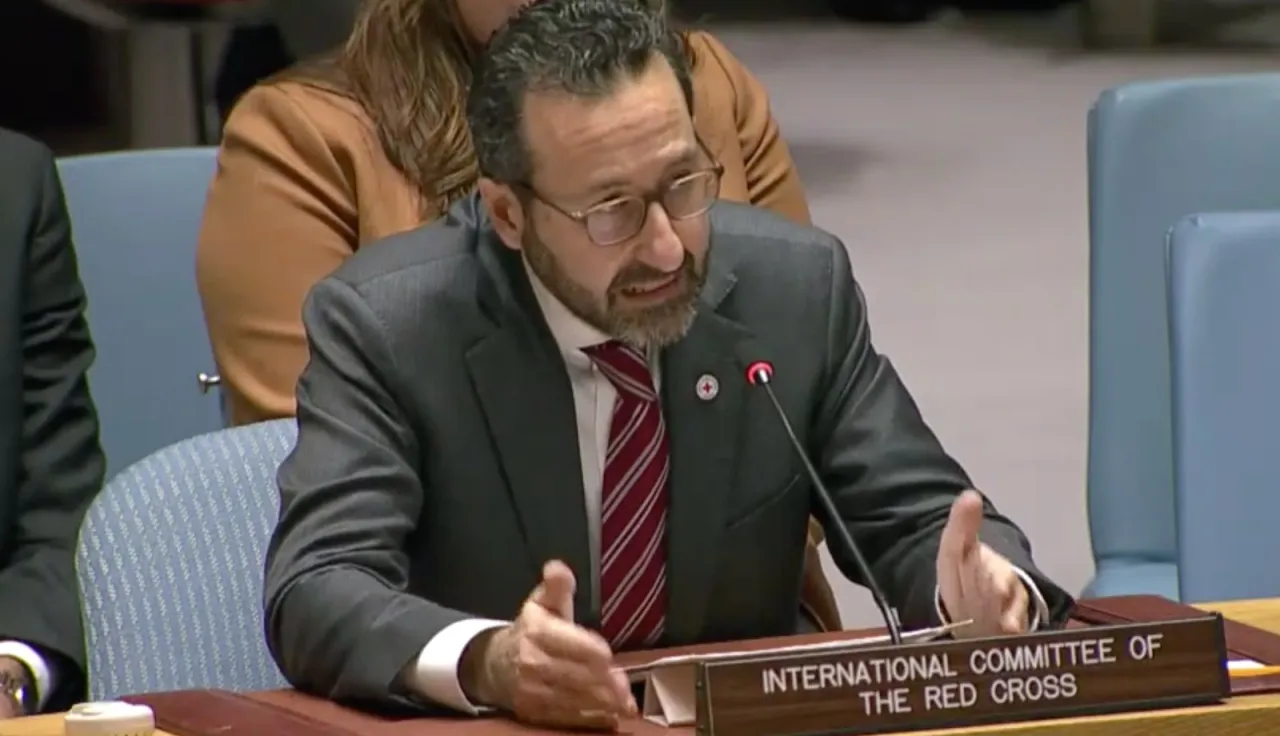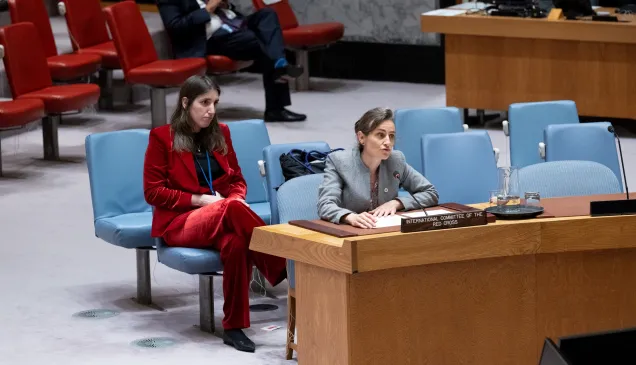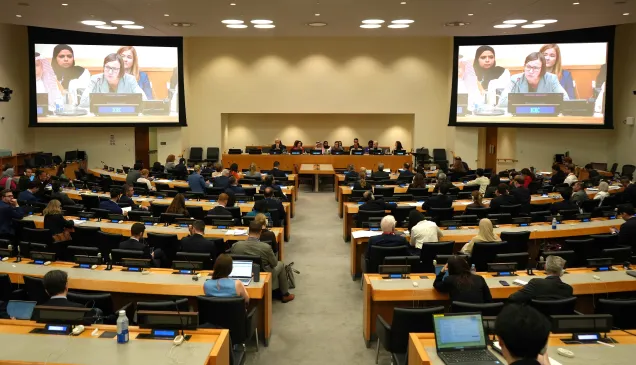As delivered by Mr. Robert Mardini, Permanent Observer to the United Nations and Head of Delegation, ICRC New York
Thank you, Mr. President, for convening this important and timely discussion.
Mr. President,
When the Nobel Peace prize was first awarded in 1901 it was given to two joint winners: Frédéric Passy, who advocated against war, and Henry Dunant, who campaigned for better protections in war. The United Nations Charter and international humanitarian law, or IHL, are much like these two prize winners. The UN Charter includes rules on going to war in the first place – the jus ad bellum. IHL applies in war – the jus in bello. These two distinct bodies of law complement each other to prevent wars on the first hand, and to better protect people in the case of war, on the other.
Today, in these times of heightened tensions and uncertainty, I will focus on two key points:
First and most critically, under IHL, civilians must be protected against attack. Parties have a responsibility to take precautions in attack and against the effects of attack so to spare the civilian population and civilian objects. And, indeed, certain objects, such as medical units and transports, cultural property, and objects indispensable to the survival of the civilian population, have specific protections.
Under IHL, an attack must be cancelled if it becomes apparent that it is prohibited. Parties must refrain from an attack when the expected harm to civilians and civilian objects outweighs the military advantage sought. It thereby becomes a disproportionate, unlawful, attack under IHL. Where circumstances permit, advance warning must be given for attacks that may affect the civilian population. And, if there is a choice between military objectives offering a similar military advantage, the option causing the least danger to civilians and civilian objects must be selected.
Second, one of the purposes of the United Nations, as set out in Article 1, paragraph 3 of the UN Charter, is to solve international problems of a humanitarian character. To this end, the Security Council addresses humanitarian concerns in armed conflict and it has an important role to play in both maintaining international peace and security and in addressing humanitarian concerns.
As one of the oldest and largest humanitarian organizations, the ICRC knows all too well the suffering that takes place when armed conflict occurs. In today's world of heightened tensions and protracted conflicts, the Security Council and the international community more broadly, must redouble efforts to prevent wars from happening in the first place. Equally important, when wars do happen, they must do their utmost so that parties, and those that support them, respect and ensure respect for international humanitarian law. Because this, in practice, reduces human suffering and preserves human dignity.
I thank you, Mr. President.




